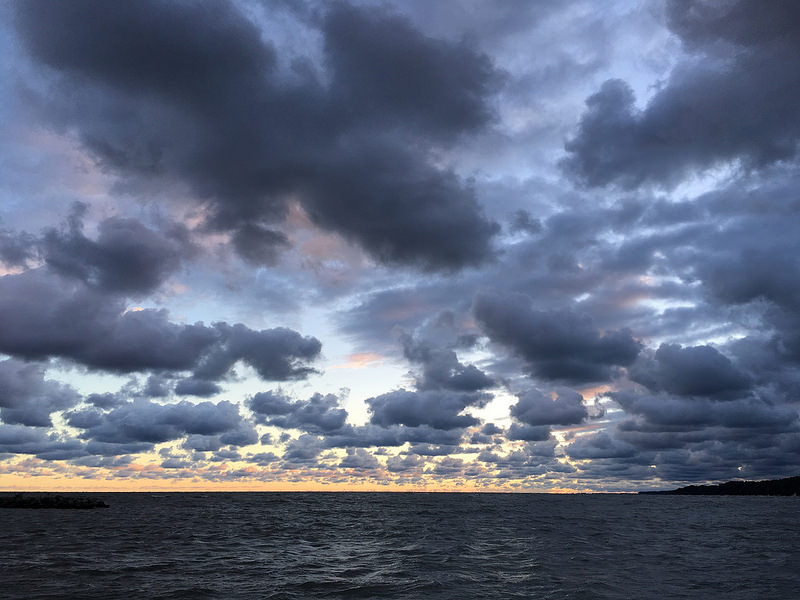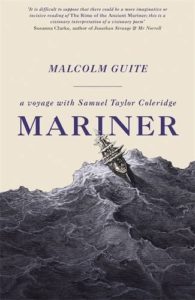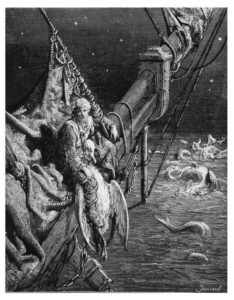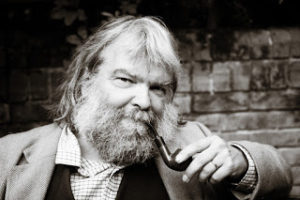
“The Rime of the Ancient Mariner” by Samuel Taylor Coleridge (1772-1834) was first published in 1798 with other Coleridge poems and poems by William Wordsworth. The collection was entitled Lyrical Ballads, and “Mariner” was by far the longest poem. The collection was originally planned as the first in a two-volume series, but Wordsworth and Coleridge changed plans and published the first volume anonymously.
It is not an understatement to say that Lyrical Ballads changed poetry forever. What is less well known, except among Coleridge biographers and teachers, is that “Mariner” was written as part of a five-year burst of creativity by the poet. In fact, all of the poems we know as Coleridge’s were written in this five-year period. Coleridge did edit the poem for the next 20 years, and he provided his own extensive commentary on it, but those five years (1797-1802) saw the sum total of Coleridge’s poetic output.

It’s a rather novel claim, that a poem could become a biographical guide. In Mariner: A Voyage with Samuel Taylor Coleridge, Guite makes his case. And he succeeds. He tells the story of Coleridge’s life through Coleridge’s best-known poem. By the end, Guite has told both the story of the poem and the story of the poet, combining poetic criticism with poetic biography and creating something that is far beyond both.
It’s rare for me to say this about a book, but Mariner is astonishing.

Samuel Taylor Coleridge
I came away with a far better understanding of “The Rime of the Ancient Mariner” than I ever had before.
I came away with a better understanding of Coleridge’s life, and especially the man’s struggles (particularly with opium), his insights, and his creative genius. In Guite’s hands, Coleridge is a living, breathing human being, not a specimen being observed under a biographical microscope.
I came away with an awareness that most of Coleridge’s modern biographers have downplayed the man’s faith, and you can’t understand his great poem without understanding the faith it springs from.

One of Gustave Dore’s engravings for “The Rime of the Ancient Mariner”
And running through all of this is Guite’s explanation of the context of Coleridge. He and his fellow Romantic poets were writing and living in a transition time, the birth of modernism, or, as Guite describes it, the shift “from the living, sacral view of the cosmos as an interconnected web of human and angelic consciousness” to the “modern mechanistic, instrumental view” of nature.
Romanticism was, in one sense, a rebellion against that modernism, and Guite sees “The Rime of the Ancient Mariner” as a poem of resistance, one that sees both the “consequences of this loss of sacral vision” and the recovery of the vision. He argues that this recovery is underway in our own time, because the “reductive Enlightenment modernist project is disintegrating all around us.” He sees Coleridge’s poem as pointing to what may be coming to take its place.
Guite, born in 1957 to British expats living in Nigeria, received a B.A. degree from Cambridge University (pater promoted to an M.A. degree) and a Ph.D. degree from Durham University. He teaches in the pastoral theology education program at Cambridge and is a visiting research fellow at Durham. He was ordained as an Anglican priest in 1990, and currently serves as chaplain of Girton College, Cambridge.

Malcolm Guite
He is a songwriter, musician, and published poet. His poetry collections include Saying the Names (2002), The Magic Apple Tree (2004), Sounding the Seasons (2012), The Singing Bowl (2013), the anthology The Word in the Wilderness (2014), and Parable and Paradox (2016). He’s also published several books on theology, including Faith, Hope, and Poetry: Theology and the Poetic Imagination (2012).
Mariner is more than an interesting or fascinating account of a poem and a poet. It’s an important book. Guite recognizes that poetry happens within a social, intellectual, political, and religious context—that thing we call culture—and it can both highlight and call attention to what is happening. Coleridge certainly did that with “The Rime of the Ancient Mariner.”
Related:
My review of Malcolm Guite’s The Word in the Wilderness
My review of Malcolm Guite’s Parable and Paradox
Photo by Seabamirum, Creative Commons, via Flickr. Post by Glynn Young, author of the novels Dancing Priest and A Light Shining, and Poetry at Work.
__________________________

“I require all our incoming poetry students—in the MFA I direct—to buy and read this book.”
—Jeanetta Calhoun Mish
- Poets and Poems: Sandra Marchetti and “Diorama” - April 24, 2025
- Poets and Poems: Christina Cook and “Roaming the Labyrinth” - April 22, 2025
- Longfellow’s “Paul Revere’s Ride”: Creating a National Legend - April 17, 2025
Laura Lynn Brown says
I loved my British Lit course that covered the Romantics, but either I didn’t remember or didn’t know some of this about Wordsworth and Coleridge. Amazing that the poem was so concentrated in Coleridge’s working years but so expansive in its content. Thanks for this, Glynn. You’ve persuaded me to check out this book, and some of Guite’s other work as well.
Glynn says
Laura, it will be published in the US in June but is avaialable from the Book Depository in the U.K. with free shipping (and cheaper than Amazon).
Donna Falcone says
Glynn, this is fascinating… the poem and the poet – paralleling each other. How very perceptive of Guite to notice… and even moreso for Coleridge to have written himself… a self yet to evolve… all into his poem.
Glynn says
Donna, it is a fascinating book. I don’t think I’ve seen a biography like it before.